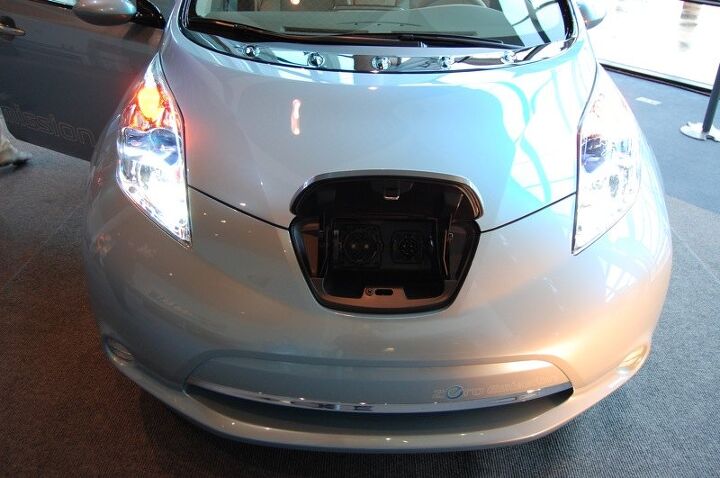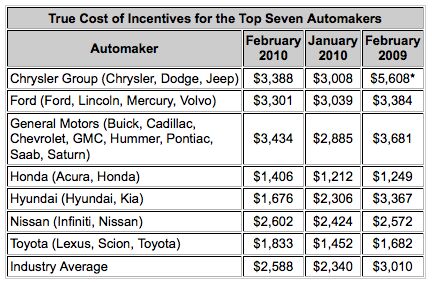#fleet
Infiniti Version Of Straight-To-Rental Nissan Leaf Planned
One of the biggest conundrums facing the folks tasked with marketing the forthcoming first generation of mainstream electric cars is branding. On the one hand, firms want their mainstream brands associated with the green halo of having an electric car in its portfolio. On the other hand, electric cars aren’t cheap. From a pure pricing perspective, it makes more sense to brand expensive EVs as luxury products. GM struggled with this problem when it developed its Converj version of the Volt, ultimately deciding that the common-sense arguments for branding the $40k Volt as a Cadillac weren’t as important as boosting Chevy’s profile with an EV offering. Nissan, meanwhile, has decided that it has room for both a Nissan-branded Leaf EV and an Infiniti-branded luxury version.
Incentives, Fleets Fattened February Sales
Chrysler once again topped Edmunds’ True Cost Of Incentive index last month, despite failing to significantly improve its sales over February 2009’s miserable showing. The only upside is that Chrysler basically held even with reduced incentives, as the entire industry is spending about 14 percent less on incentives than it did a year ago. Another interesting point of analysis from Edmunds:
Comparing all brands, in February smart spent the least, $341 followed by Scion at $426 per vehicle sold. At the other end of the spectrum, Lincoln spent the most, $5,568, followed by HUMMER at $5,195 per vehicle sold. Relative to their vehicle prices, Saturn and HUMMER spent the most, 14.9 percent and 13.6 percent of sticker price, respectively; while Porsche spent 1.4 and smart spent 2.3 percent.
But Toyota and GM will help carry those numbers up next month, with huge incentive spends planned. Meanwhile, after many automakers found religion about retail sales last year, fleet sales are back in a big way. And they’re no longer seen as something to be ashamed of.
Fleets Flirting With Ford's Fusion
London Olympic Committee: EVs Are Gimmicks
We didn’t want a big fleet of electric vehicles. We’re only just over two years or so away from the games and time is running out to create a viable network. Many of the vehicles will be used for around 18 hours a day. It’s hard graft, and we knew BMW could supply the vehicles to meet these demands.”
Paul Deighton, CEO of the London Organizing Committee for the Olympic Games (LOCOG) explains to Autocar why the games won’t be relying on electric vehicles in 2012. Nissan had presented a bid to be the games’ official vehicle supplier which proposed using Leaf EVs for over half the planned fleet. A “small proportion” of BMW’s winning fleet proposal will be electric MINI Es, and all proposals were required to achieve a fleet average of 120g/km of CO2. But that hasn’t stopped Nissan from getting petulant.


















Recent Comments